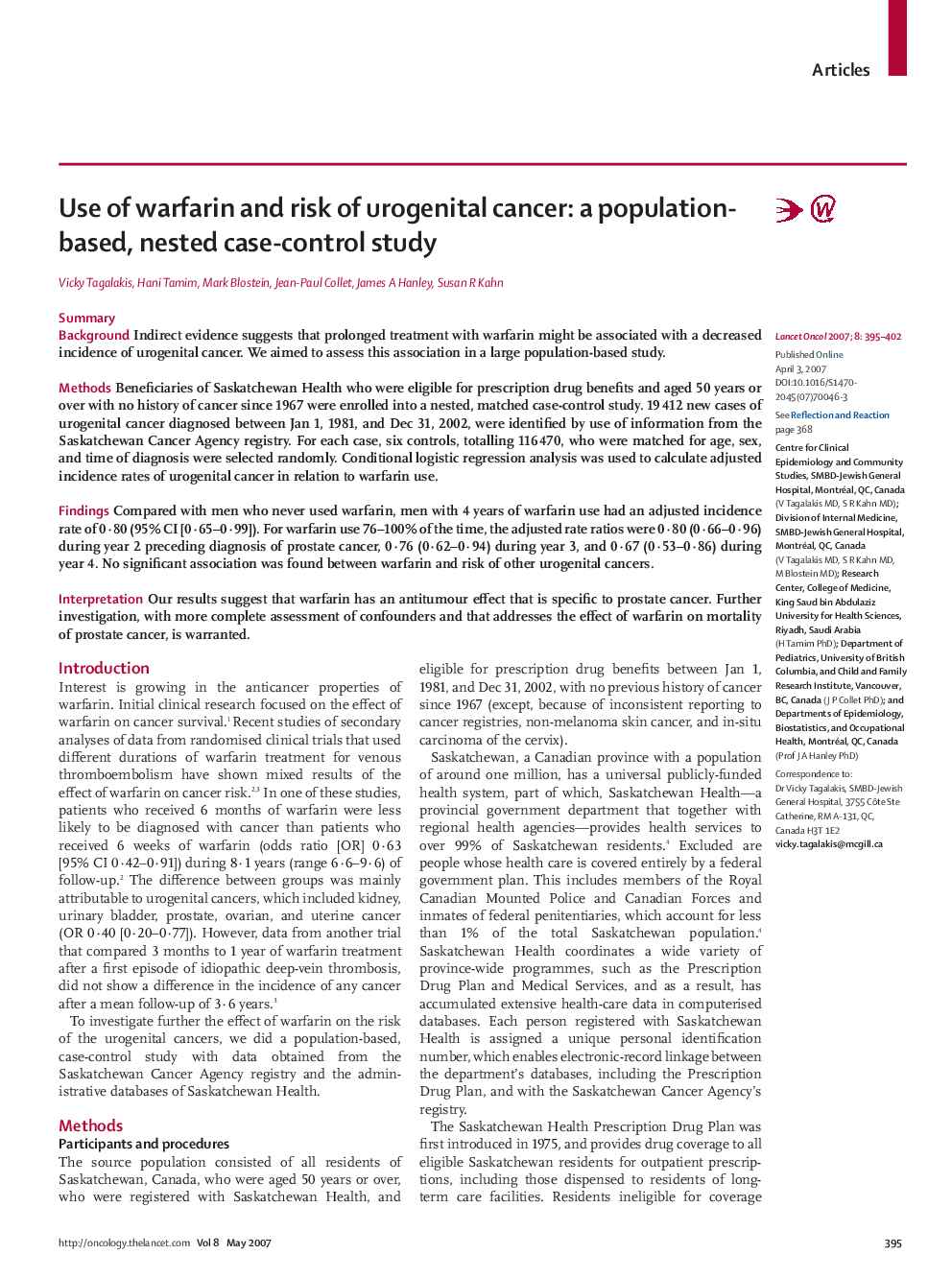| Article ID | Journal | Published Year | Pages | File Type |
|---|---|---|---|---|
| 3996275 | The Lancet Oncology | 2007 | 8 Pages |
SummaryBackgroundIndirect evidence suggests that prolonged treatment with warfarin might be associated with a decreased incidence of urogenital cancer. We aimed to assess this association in a large population-based study.MethodsBeneficiaries of Saskatchewan Health who were eligible for prescription drug benefits and aged 50 years or over with no history of cancer since 1967 were enrolled into a nested, matched case-control study. 19 412 new cases of urogenital cancer diagnosed between Jan 1, 1981, and Dec 31, 2002, were identified by use of information from the Saskatchewan Cancer Agency registry. For each case, six controls, totalling 116 470, who were matched for age, sex, and time of diagnosis were selected randomly. Conditional logistic regression analysis was used to calculate adjusted incidence rates of urogenital cancer in relation to warfarin use.FindingsCompared with men who never used warfarin, men with 4 years of warfarin use had an adjusted incidence rate of 0·80 (95% CI [0·65–0·99]). For warfarin use 76–100% of the time, the adjusted rate ratios were 0·80 (0·66–0·96) during year 2 preceding diagnosis of prostate cancer, 0·76 (0·62–0·94) during year 3, and 0·67 (0·53–0·86) during year 4. No significant association was found between warfarin and risk of other urogenital cancers.InterpretationOur results suggest that warfarin has an antitumour effect that is specific to prostate cancer. Further investigation, with more complete assessment of confounders and that addresses the effect of warfarin on mortality of prostate cancer, is warranted.
